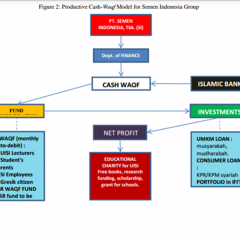Harvesting Solar Energy by Combining Thermal and Photovoltaic System in Fish Dryer
1st Elita Fidiya Nugrahani
Engineering Management
Universitas Internasional Semen
Indonesia
Gresik, Indonesia
elita.nugrahani@uisi.ac.id
2nd Yunita Siti Mardhiyyah
Agroindustrial Technology
Universitas Internasional Semen
Indonesia
Gresik, Indonesia
yunita.mardhiyyah@uisi.ac.id
3rd Ahmad Tavif
Engineering Management
Universitas Internasional Semen
Indonesia
Gresik, Indonesia
ahmadtavif@gmail.com
Indonesia is a tropical maritime country, has abundant of sea product including in the Gresik Regency which has aquaculture products of 79 thousand tons per year and
marine catches of 18 thousand tons per year. Drying is one of the methods to store fishery products longer. Conventional
drying carries out with the medium of wind and sunlight. However, contamination of dust and other impurities cannot be avoided from conventional drying. Therefore, fish drying research will be carried out using a hybrid method with thermal collectors and solar panels to harvest solar energy which lead to increase efficiency and overcome the disadvantages of conventional fish drying. This tool model refers to the design of
solar powered fish dryers with the development of additional thermal aisles and solar panels. The design of this study uses solar energy that is converted to heat through thermal collectors and cabinet spaces that resemble the greenhouse effect. Photons in solar energy are converted into electricity and become mechanical energy that will move the blower, that converted by
photovoltaic. Air enters from the blowers to the thermal tunnel whose base is made of black plate as a thermal collector and the
envelope is made of glass. Then hot air is brought to the cabinet drying chamber containing fish. The fish receives heat from the thermal collector and the cabinet system which also receives heat from the mirror installed on all three sides of the cabinet. Hot air containing moisture will come out on the cabinet's top shelf. The performance of dryers is measured by the value of efficiency and the quality of the fish. Based on experimental study, the efficiency of solar dryer is 43.15% and the bacteria
test is 45 x 107 CFU/ml.
Keywords— solar energy, thermal collector, photovoltaic, fish dryer
Full Paper: Download Full Paper
Plagiarism Check: Download Check Plagiarism
Peer Review: Download Peer Review
Plagiarism Check 2: Download Check Plagiarism




